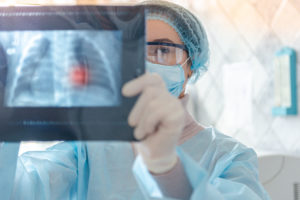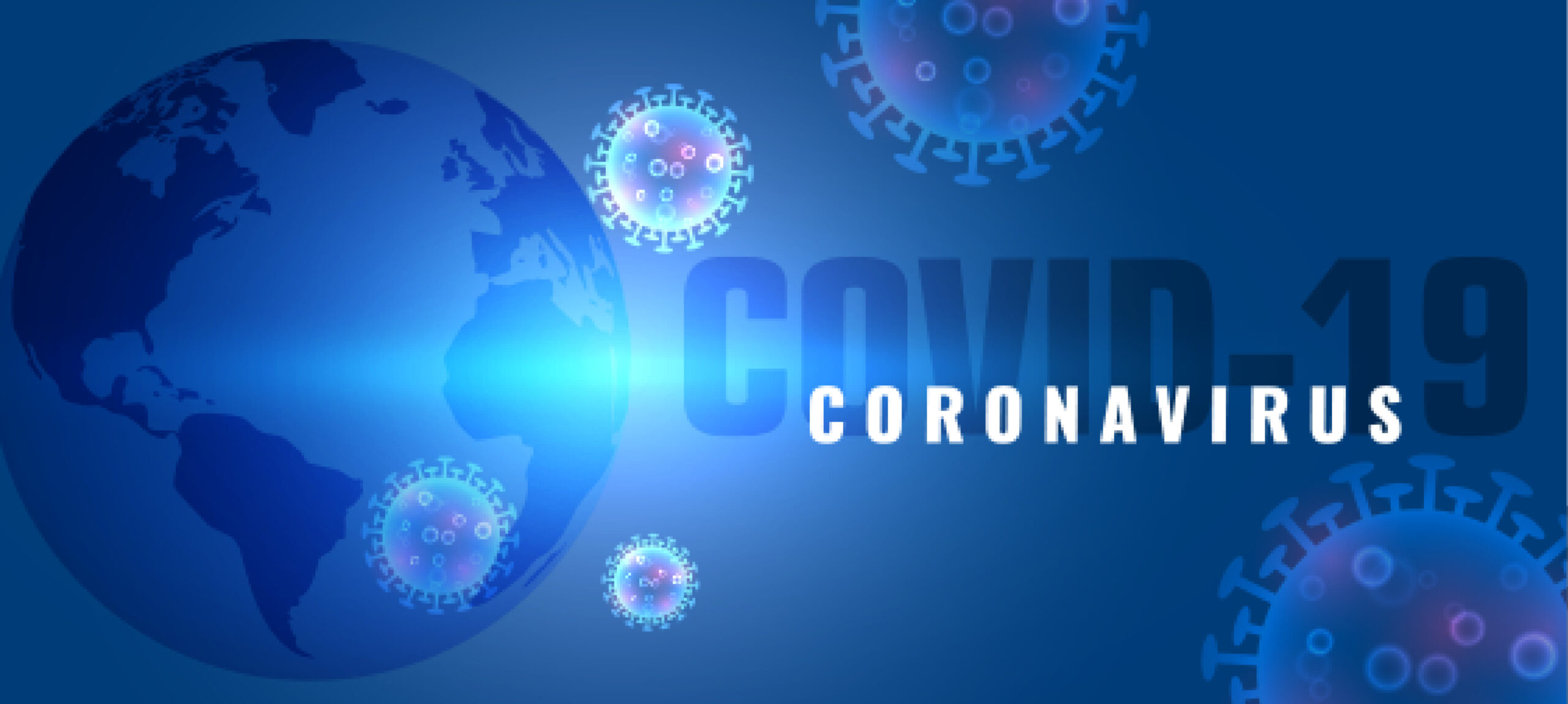I have had the outmost pleasure of working with Neelu Khanuja on several occasions. She is the most responsive and resilient attorney. Works around the clock to ensure every step of the case is handled rigorously and in a very organized manner. Neelu is results driven and excellent communicator. She goes the extra mile for her clients and is dedicated to getting the desired results. I highly recommend her services.
home page 25-11-10
KHANUJA LAW
Southern California Law Firm that Puts People First.
Practice Areas

Workers' Compensation Law

Labor Law
Employment Law
Testimonials
FAQs
Is your question not here?
Legal Updates
SB 1159 Signed Into Law
Legal Update: On September 17, 2020, California Governor Newsom signed SB 1159 into law expanding on the rebuttable presumption created from Executive Order N-62-20 to include illness or death resulting from COVID-19 to be compensable for any employee and establishing two new presumptions pertaining to frontline employees and employees who contracted COVID-19 during a workplace outbreak on or after July 6, 2020 through January 1, 2023, resulting in the addition of three (3) Labor Code sections. Labor Code §3212.86 codifies Executive Order N-62-20 that created a rebuttable presumption that an employee who was diagnosed with or tested positive for COVID-19 between March 19, 2020 through July 5, 2020 contracted the virus on the job. SB 1159 extends the presumption to encompass an illness or death related to COVID-19 to be compensable if the following four conditions are met:
1) The employee has tested positive for or was diagnosed with COVID-19 within 14 days after a day that the employee performed labor or services at the employee’s place of employment at the employer’s direction;
2) The last day the employee worked at the employer’s direction at his or her place of employment was on or after March 19, 2020 and on or before July 5, 2020;
3) The place of employment was not the employee’s home or residence; and
4) The COVID-19 diagnosis was made by a licensed physician and surgeon holding a M.D. or D.O. or a supervised state licensed physician assistant or nurse practitioner. The diagnosis is confirmed by testing or by a COVID-19 serologic test within thirty (30) days of the date of the diagnosis
Labor Code §3212.87 creates an industrial causation presumption for frontline employees who have contracted COVID-19 in the workplace, including illness or death resulting from COVID-19, between July 6, 2020 and January 1, 2023. The frontline employees covered under this presumption are the following, including but not limited to: firefighters, peace officers, rescue service coordinators, peace officers, health facility employees, registered nurses, emergency medical technicians, emergency-medical technician-paramedics, employees providing direct patient care for a home health agency and providers of in-home supportive services. For the presumption to apply, the aforementioned employees must establish the following conditions:
1) They performed labor or services at their place of employment, not their home or residence, at the employer’s direction on or after July 6, 2020; and
2) The employee has tested positive for COVID-19 within 14 days after a day that the employee performed labor or services at the employee’s place of employment at the employer’s direction.
Labor Code §3212.88 establishes an industrial causation presumption for employees who are not frontline workers but who test positive for COVID-19 during an outbreak at their place of employment if it has five or more employees. The injury for the presumption encompasses illness or death resulting from COVID-19. For the presumption to apply, the employee must establish the following conditions:
1) The employee tests positive for COVID-19 within 14 days on or after July 6, 2020 that the employee performed labor or services at the employee’s place of employment at the employer’s direction; and
2) The employee’s positive test occurred during a period of an outbreak at the employee’s specific place of employment.
Under Labor Code §3212.88, there is a forty-five (45) day period to deny the claim after the claim form is filed.
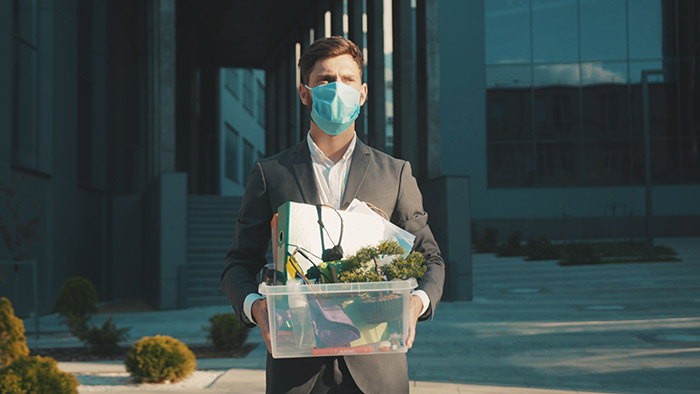
Laid Off as a Result of the COVID-19 Pandemic?
A non-essential employer will no longer be able to offer modified work to an injured worker if the employer closes business and lays off the staff due to the COVID-19 pandemic. Pursuant to the reasoning in Manpower Temporary Services v. Workers’ Compensation Appeals Board (Rodriguez), the injured worker may be entitled to temporary disability indemnity if the business’s closure due to the COVID-19 pandemic is not considered “good cause” for the layoff. However, the Board in Signature Fruit Co. v. Workers' Compensation Appeals Board (Ochoa) found that “the essential purpose of temporary disability indemnity is to help replace the wages the employee would have earned, but for the injury, during his or her period(s) of temporary disability.” The employer will argue that the laid off, disabled worker is not losing wages due to the work-related injury but as a result of the pandemic, which does not entitle him or her to temporary disability benefits.
Due to the current novelty of the workers’ compensation issues arising from the outbreak of COVID-19, we will have to wait and see how courts rule on the issue of temporary disability following layoff in the absence of any specific case precedent addressing it.
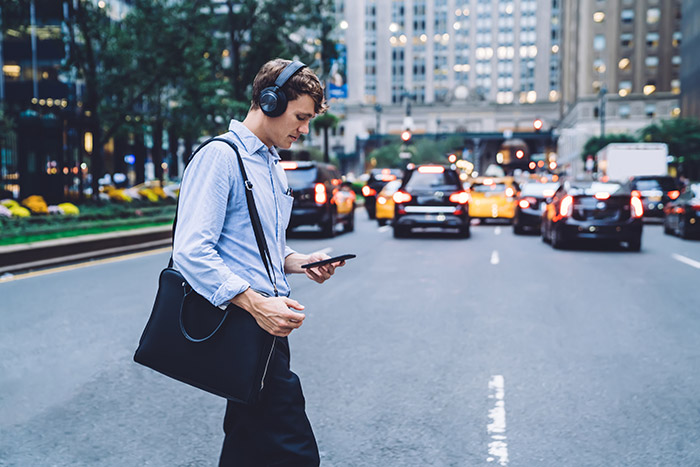
Are you working this weekend?
Generally, an injury occurring during an employee’s routine commute is not considered to be work-related pursuant to the Going and Coming Rule. However, an injury may be considered work-related under the Special Mission Exception when the employee is “engaged upon a mission which incidentally or indirectly contributed to the service and benefit of the employer.” Shell Oil Co. v. I.A.C. (Byrd) (1962) 27 Cal. Comp. Cases 27.
Legal Update: The Workers’ Compensation Appeals Board recently issued a noteworthy Panel decision in Kong v. City of Hope National Medical Center, (2020) Cal. Wrk. Comp. P.D. LEXIS 118, finding that the employee sustained a work-related injury to his lower extremities, left shoulder and low back as a result of being struck by a vehicle while walking home from work on his day off to fulfill his supervisor’s request to prepare data for a presentation the next day. The Board found that the injury sustained while commuting to work on a Saturday qualified as a work-related injury under the Special Mission Exception to the Going and Coming Rule.

Legal Update: Utilization Review
The Workers’ Compensation Appeals Board (“WCAB”) recently released a significant Panel decision in Smith v. Marin General Hospital finding that a second timely Utilization Review (“UR”) decision is required when the primary treating physician submits a second Request for Authorization (“RFA”) for treatment within the twelve (12) month period from the UR denial of the first RFA for same.
Pursuant to Labor Code Section 4610(k), a UR denial shall remain effective for twelve (12) months from the date of the denial unless there is a change in the material facts. Here, UR denied the primary treating physician’s first RFA for spinal fusion surgery. Months later, Applicant’s primary treating physician submitted a second RFA for same but checked the box marked “Resubmission – Change in Material Facts” on the RFA. Pursuant to Labor Code Section 4610(k), defendant denied the second RFA as duplicative without submitting it to UR. At that time, the WCAB retained jurisdiction on the medical treatment dispute. The WCAB held that the twelve (12) month period per Labor Code Section 4610(k) was not applicable when defendant received additional supporting information that Applicant’s condition had deteriorated. The WCAB found that it was necessary Applicant receive the requested spinal fusion surgery and defendant failed to timely submit the second RFA to UR.
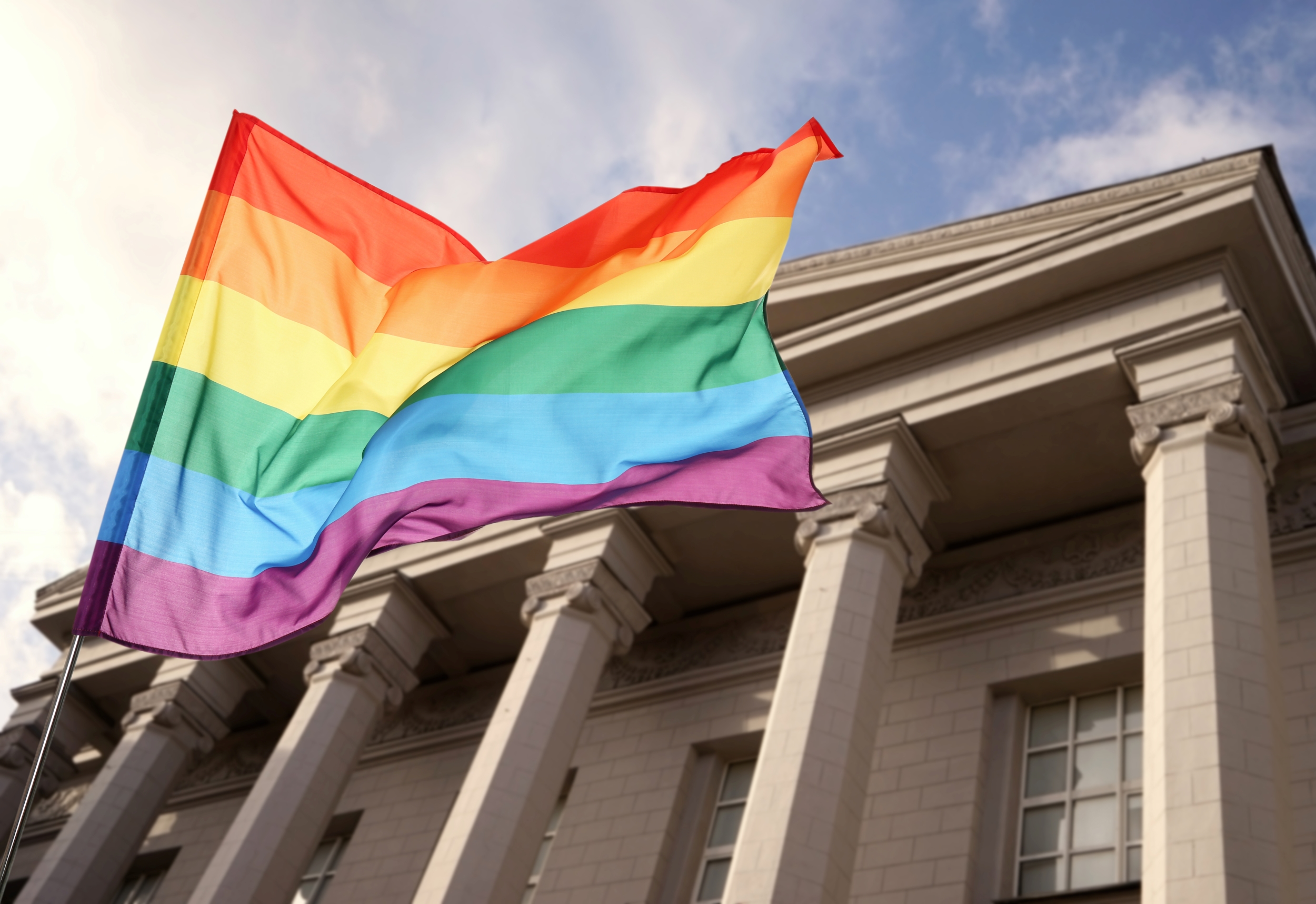
Legal Update: Employment Discrimination Against Gay & Transgender Workers
On June 15, 2020, in the landmark case, Bostock v. Clayton County, Georgia, No. 17-1618, the U.S. Supreme Court ruled that an employer who fires an employee merely for being gay or transgender violates Title VII of the Civil Rights Act of 1964.
The definition of “sex” in Title VII was at issue. In a 6-to-3 ruling, the Supreme Court found that the provision of the Civil Rights Act that bans employment discrimination on the basis of sex also encompasses sexual orientation and gender identity. In the decision, Justice Neil Gorsuch wrote for the majority, “An employer who fires an individual for being homosexual or transgender fires that person for traits or actions it would not have questioned in members of a different sex. Sex plays a necessary and undisguisable role in the decision, exactly what Title VII forbids.” This Supreme Court decision is a tremendous victory for L.G.B.T. rights nationwide!
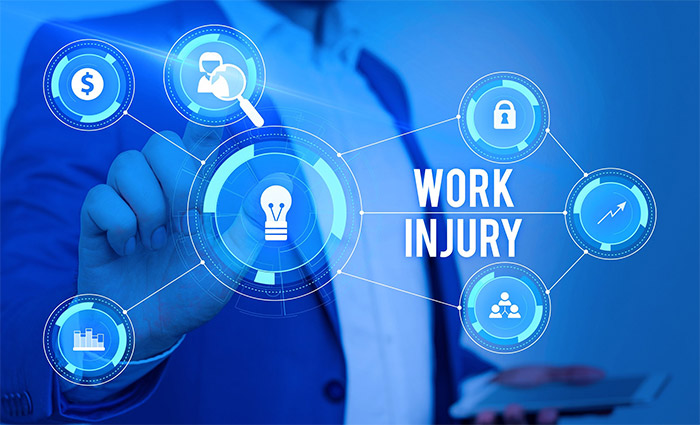
Legal Update: Limitation on Scope of Hikida
On May 27, 2020, in County of Santa Clara v. WCAB(Justice), the 6th District Court of Appeals held that permanent disability could be apportioned to non-industrial factors pursuant to Labor Code Section 4663 following industrial medical or surgical treatment regardless if it is directly caused by the work-related injury. The holding follows the finding in Petaluma which states that when there is unrebutted substantial medical evidence that non-industrial factors caused permanent disability, permanent disability shall be apportioned pursuant to the Labor Code. The non-industrial factors include pathology, asymptomatic prior conditions and retroactive prophylactic work preclusions. The Applicant in this matter had non-industrial, preexisting knee degeneration that caused 50% of the resulting post-surgical permanent disability.
The Court provided a narrow interpretation of Hikida finding that it only precludes apportionment when the sole cause of the permanent disability is the industrial medical treatment. Here, the industrial medical treatment did not result in a new compensable consequential injury and the permanent disability was not caused solely by the industrial medical treatment. In sum, the facts of both cases differ but the Court’s interpretation of Hikida limits its scope and applicability.
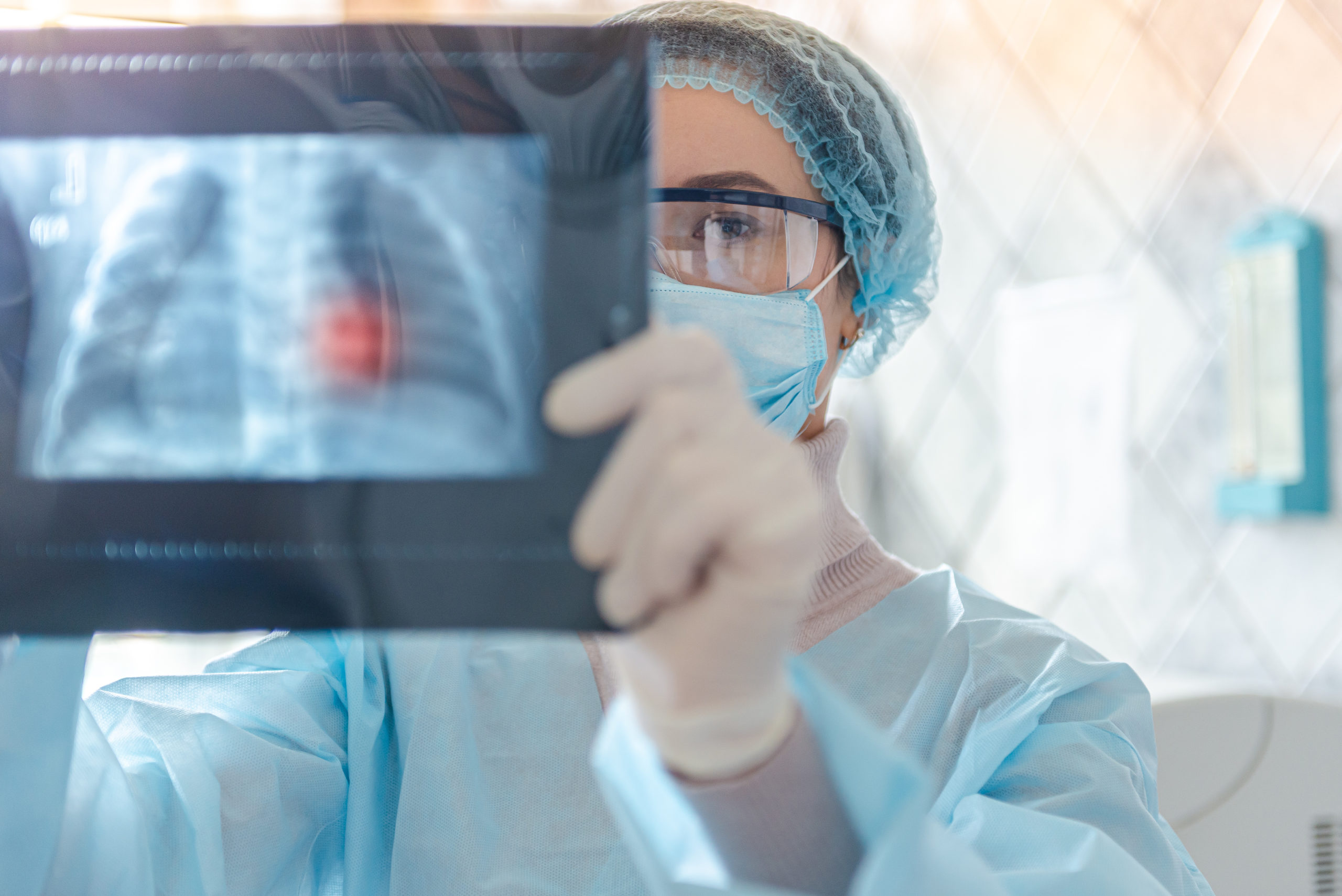
Legal Update: COVID-19 Contracted on the Job
On May 6, 2020, California Governor Gavin Newsom issued Executive Order N-62-20 establishing a rebuttable presumption that an employee who tests positive for or was diagnosed with COVID-19 contracted the virus on the job. This presumption covers dates of injury from March 19, 2020 through July 5, 2020. However, to qualify for this presumption, the following four conditions must be met:
- 1) The injured worker tested positive for or was diagnosed with COVID-19 within fourteen (14) days from the last day the injured worker performed labor or services at the employee’s place of employment at the employer’s direction;
- 2) The last day the injured worker worked at the employer’s direction at his or her place of employment was on or after March 19, 2020;
- 3) The place of employment was not the injured worker’s home or residence; and
- 4) The COVID-19 diagnosis was made by a physician who holds a physician and surgeon license issued by the California Medical Board. The diagnosis must be confirmed within thirty (30) days by further testing.
Governor Newsom modified Labor Code Section 5402 creating a thirty (30) day time period for Defendants to accept or deny compensability for the alleged COVID-19 illness. If not denied within the first thirty (30) days, the COVID-19 illness is presumed compensable but can be rebutted with evidence discovered after the thirty (30) day period. If the illness is found compensable, the injured worker’s paid sick leave benefits must be completely exhausted before temporary disability benefits are due and payable.
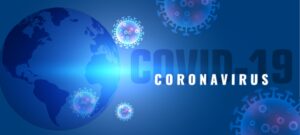
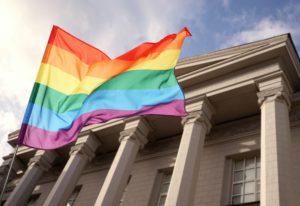 On June 15, 2020, in the landmark case, Bostock v. Clayton County, Georgia, No. 17-1618, the U.S. Supreme Court ruled that an employer who fires an employee merely for being gay or transgender violates Title VII of the Civil Rights Act of 1964.
On June 15, 2020, in the landmark case, Bostock v. Clayton County, Georgia, No. 17-1618, the U.S. Supreme Court ruled that an employer who fires an employee merely for being gay or transgender violates Title VII of the Civil Rights Act of 1964.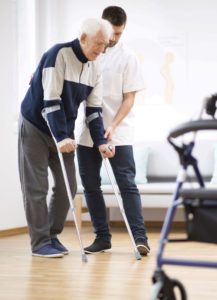 On May 27, 2020, in County of Santa Clara v. WCAB(Justice), the 6th District Court of Appeals held that permanent disability could be apportioned to non-industrial factors pursuant to Labor Code Section 4663 following industrial medical or surgical treatment regardless if it is directly caused by the work-related injury. The holding follows the finding in Petaluma which states that when there is unrebutted substantial medical evidence that non-industrial factors caused permanent disability, permanent disability shall be apportioned pursuant to the Labor Code. The non-industrial factors include pathology, asymptomatic prior conditions and retroactive prophylactic work preclusions. The Applicant in this matter had non-industrial, preexisting knee degeneration that caused 50% of the resulting post-surgical permanent disability.
On May 27, 2020, in County of Santa Clara v. WCAB(Justice), the 6th District Court of Appeals held that permanent disability could be apportioned to non-industrial factors pursuant to Labor Code Section 4663 following industrial medical or surgical treatment regardless if it is directly caused by the work-related injury. The holding follows the finding in Petaluma which states that when there is unrebutted substantial medical evidence that non-industrial factors caused permanent disability, permanent disability shall be apportioned pursuant to the Labor Code. The non-industrial factors include pathology, asymptomatic prior conditions and retroactive prophylactic work preclusions. The Applicant in this matter had non-industrial, preexisting knee degeneration that caused 50% of the resulting post-surgical permanent disability.